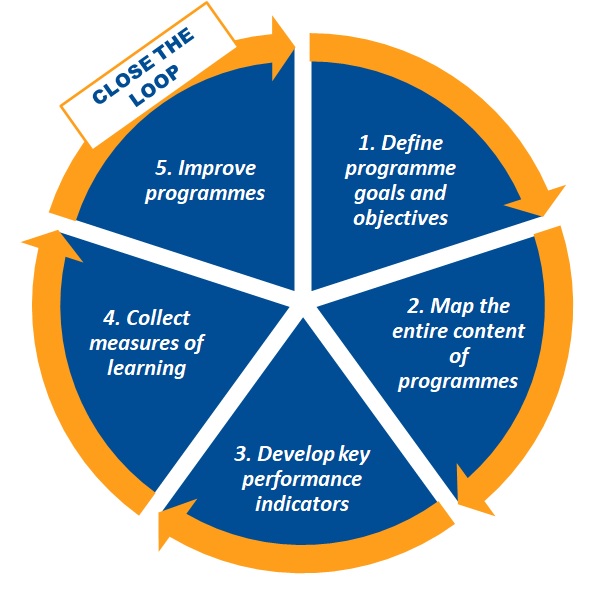In the same section
- Why SBS-EM is the right choice
- Students book
- Bachelor Programmes
- Master Programmes
- Specialised Masters
- QTEM
- PhD Programmes
- Solvay Lifelong Learning - Executive Education
- Pedagogical Support Office (BAPS) & Help to Succeed
- Teaching Awards
- Solvay Career Services
- Teaching Sustainable Development
- Engaged students
- Programmes in Vietnam
- Prizes
- Assurance of Learning (AoL)
-
Share this page
Assurance of Learning (AoL)
Quality assurance is the maintenance and improvement of a desired level of quality in a service or product. Just like companies, educational institutions like the Solvay Brussels School of Economics and Management are increasingly challenged to analyse, align and benchmark the content of their programmes, their teaching practices, and the employability of their graduates.
Based on each programme learning goal (LG) and outcome (LO), the spirit of the Assurance of Learning process (AoL) is to question how well the student experience meets its expectations and objectives, in a systematic and documented approach.
By examining the content of the programmes, the performance of the students, their employability and the feedback of various stakeholders (students, professors, graduates, companies and partner institutions) the school can base the adjustments and reforms of its programmes on both qualitative and quantitative data and ensure that they are continuously up to date. The AoL process supports our education offer and focuses on two principles which are the foundation of quality assurance: accountability and continuous improvement, collectively.
Description of the different stages:
- The school defines the knowledge and skills graduates should know for each of its degree programmes. These "graduate profiles" are a logical articulation between the main goals and sub-learning objectives arising from the mission, vision and key values of the school.
- Programmes are entirely mapped so that we can identify in which courses and at what point in the programme each objective is taught and evaluated, at different levels of mastery. This step allows more transparency and valuation of all parties.
- Different measures of learning are collected through various sources to confront the intended outcomes to the reality.
- Measures are pooled in reports leading to observations and suggestions for improvements. These measures combine the student performance against each objective with quantitative and qualitative observations from various stakeholders.
- Closing the loop means implementing changes arising from these observations and start a new cycle.
The focus is on the outcomes rather than on what is taught. For each expectation that is not sufficiently met, there is room for improvement.

Updated on August 17, 2021